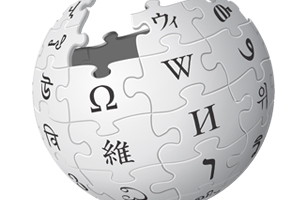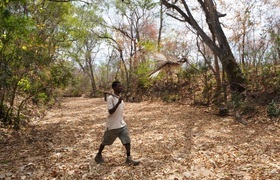Wikipedia Wordathon - UCT make your mark for South Africa!
18 September 2013 | Story by Newsroom
LeadSA has invited the University of Cape Town and other South African universities to participate in an initiative to populate Wikipedia with articles written by South Africans about topics relevant to our country ahead of Heritage Day on Tuesday, 24 September 2013.
The wordathon takes place on Thursday, 19 September and you can make an entry at any time during the day.
At the moment less than 10% of articles in the English edition of Wikipedia are created by people outside of Europe and North America. UCT is asking its students and staff to play a small part in changing that by ensuring that the information about South Africa on Wikipedia is up-to-date and informative.
Wikipedia is an online encyclopedia that can be edited by anyone. It was started in 2001 and now has over four million articles in English. The number of visitors to the site allows it to rank as one of the top 10 most popular websites. More information can be found here.
South Africa is likely to be in the spotlight next year as South Africa celebrates 20 years since the advent of democracy in 1994 and many people go to Wikipedia as a starting point for information about our country.
It is up to you what article you edit or create '“ the UCT community has expertise on a vast range of topics. If you would like to participate in the wordathon please edit or create your article and let us know.
Editing or creating an article is easy. Please follow the instructions here.
Anyone can add an article, but depending on the page and the topic, it may require a review by one of the more than 70 000 voluntary editors to address issues with style and accuracy.
There are guidelines to determine what subjects qualify for acceptable entries and the style guide for how they should be written.
For a list of already written articles about South Africa that could be expanded upon, click here.
 This work is licensed under a Creative Commons Attribution-NoDerivatives 4.0 International License.
This work is licensed under a Creative Commons Attribution-NoDerivatives 4.0 International License.
Please view the republishing articles page for more information.










